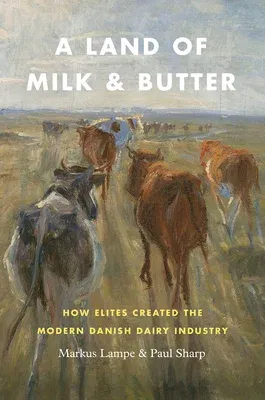Markus Lampe
(Author)A Land of Milk and Butter: How Elites Created the Modern Danish Dairy IndustryHardcover, 5 April 2019

Qty
1
Turbo
Ships in 2 - 3 days
In Stock
Free Delivery
Cash on Delivery
15 Days
Free Returns
Secure Checkout

Part of Series
Markets and Governments in Economic History
Print Length
320 pages
Language
English
Publisher
University of Chicago Press
Date Published
5 Apr 2019
ISBN-10
022654950X
ISBN-13
9780226549507
Description
Product Details
Authors:
Book Format:
Hardcover
Country of Origin:
US
Date Published:
5 April 2019
Dimensions:
23.11 x
15.49 x
2.54 cm
Genre:
Scandinavian
ISBN-10:
022654950X
ISBN-13:
9780226549507
Language:
English
Pages:
320
Publisher:
Weight:
521.63 gm